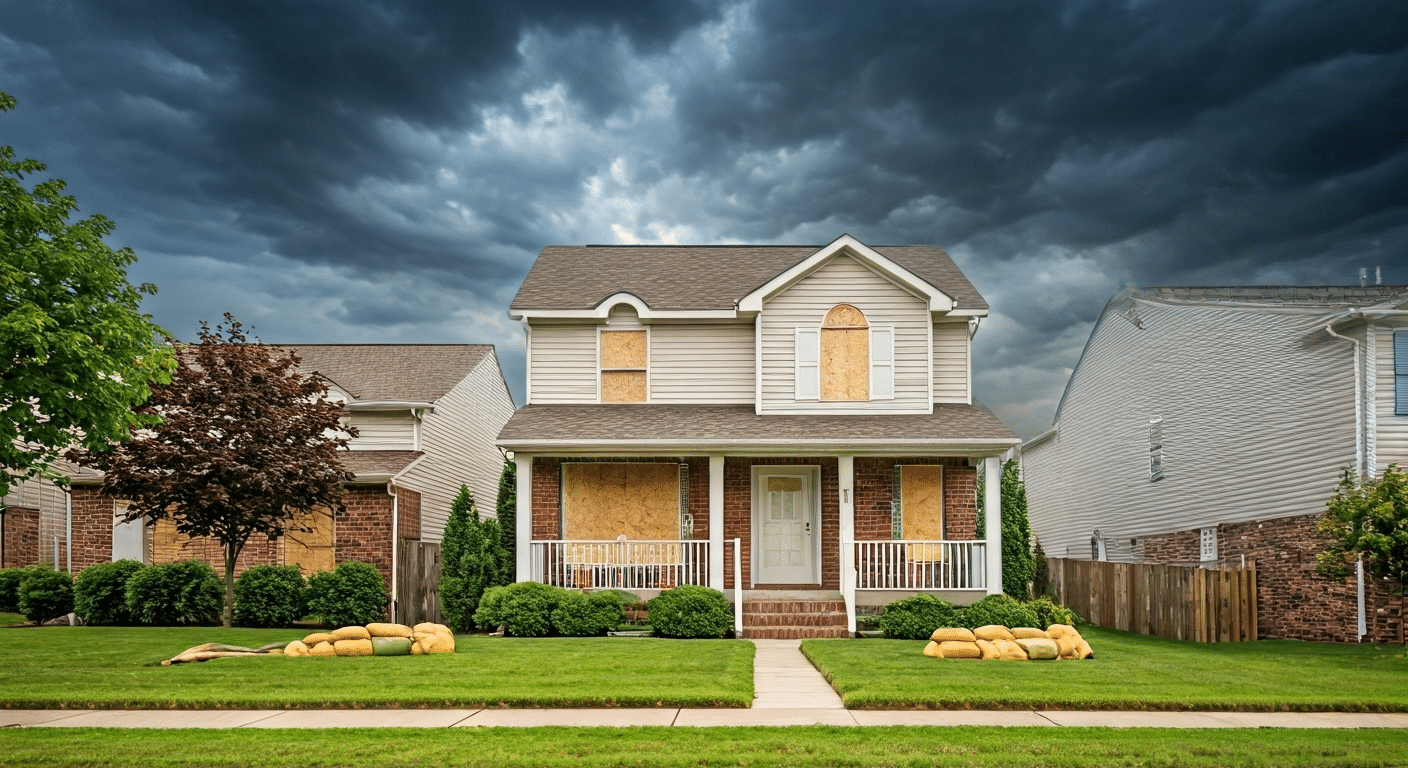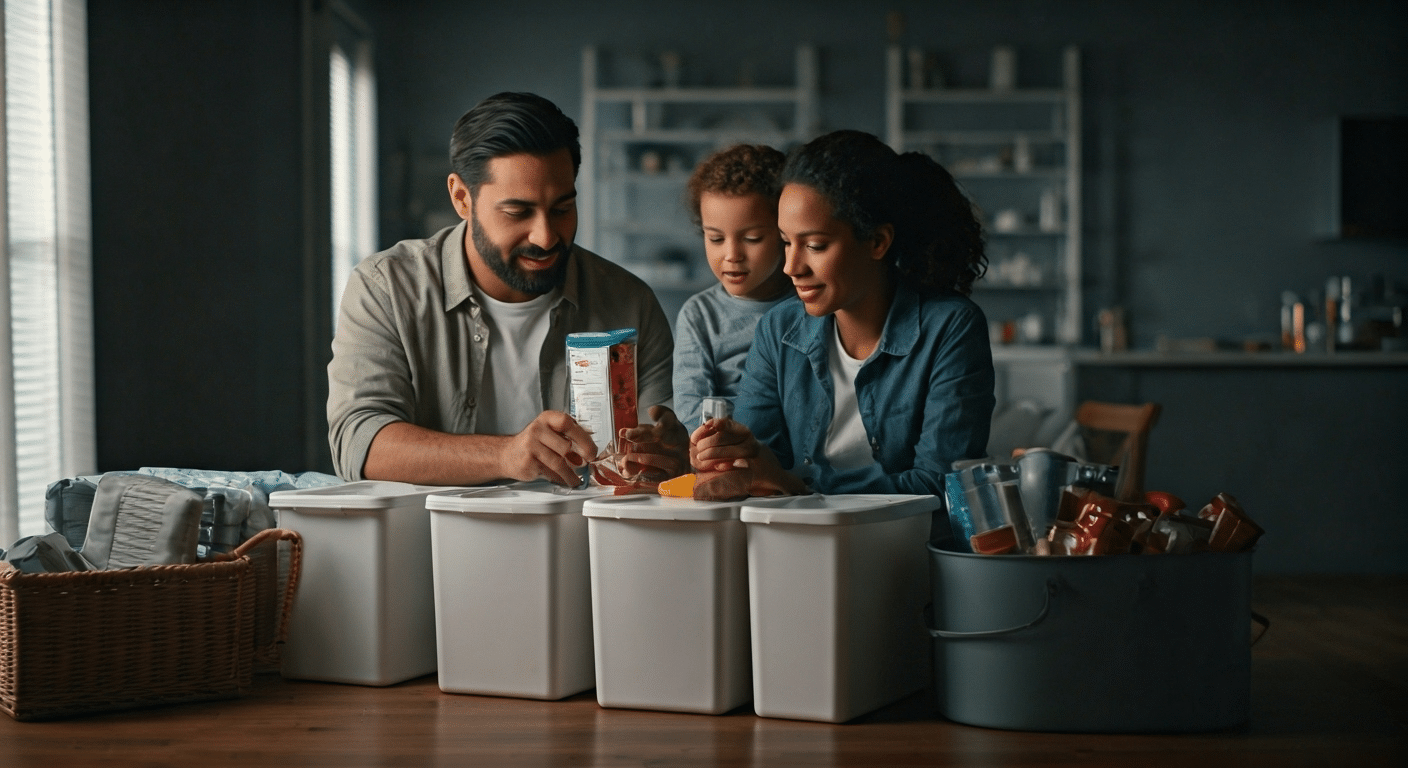
Key Highlights
- The Atlantic hurricane season typically spans from June to November, posing significant risks like flooding and power outages.
- Gather a hurricane emergency kit stocked with essentials such as flashlights, extra batteries, and sufficient food and water.
- Know your evacuation routes and locate safe places to avoid floodwaters and storm surges during hurricane conditions.
- Protect your home by securing windows, doors, and removing loose debris from outdoor areas to mitigate damage from high winds.
- Stay informed via NOAA weather radio, local authorities, and social media to receive reliable hurricane warnings and updates.
- Preparing your family and pets for safety ensures effective hurricane preparedness to navigate natural disasters.
Introduction
Between June and November, the Atlantic hurricane season can bring powerful storms that cause big problems for both coastal and inland areas. The best way to stay safe during hurricane season is to be ready and have a plan. You want to make sure you and your family are protected if the storm comes your way. Hurricanes can bring high winds, strong storm surges, and flooding, all of which can do a lot of damage. If you live in a place that might be hit, take steps for hurricane preparedness now. This guide gives you key steps for readiness during hurricane season, so you will know what to do and keep your family safe.
Essential 10 Things to Do to Prepare for a Hurricane

Effective hurricane preparedness means you should take some clear steps to keep your family, your home, and your pets safe. Gathering emergency supplies before the storm, and making sure your home is strong enough for a hurricane, is important. Doing these things before hurricane season comes can really help you and your loved ones. You also need to know your evacuation routes, be ready for power outages, and stay up to date with news from trusted sources. These things are important for hurricane preparedness and safety.
Follow these 10 helpful hurricane safety tips so you are ready if a hurricane does happen. Doing each one will help you feel strong and prepared if you face a dangerous situation during hurricane season.
1. Create a Family Emergency Plan
If you need to leave your home fast, it is important to have a family emergency plan. This helps keep everyone safe. First, find the best evacuation routes that go to higher ground. Pick out a few safe places your family can stay, like a shelter or a friend’s house outside the flood area.
Talk about the emergency plan with your family so that each person knows what to do. Practice the plan from time to time. It is also smart to give out jobs. For example, pick someone to watch the pets and someone who will take important papers. Always listen to local authorities when you need to leave.
Make an extra plan for what to do if you lose power or there is a long time of flooding. Be sure your safe place is easy to get to when you need it. It should have what you need for an emergency. When you stay ahead and plan for these things, it helps everyone feel sure of what to do if you face trouble.
2. Assemble a Hurricane Emergency Kit
An emergency kit helps you stay safe right after hurricanes. You need to pack it with things that will help you get through at least three days. Your kit should have:
- Non-perishable food and bottled water.
- Extra batteries, flashlights, and a portable NOAA weather radio.
- Hygiene items and any medicines your family might need.
- First-aid supplies for small injuries.
Because of COVID-19, add hand sanitizer and masks to your kit for more safety. Check your kit often, and put in new items if anything gets used or expires.
Keep your emergency kit in a spot you can reach easily. Also, use a waterproof container to keep your supplies safe from flooding and storm damage. If there is an evacuation, take your kit with you right away. This makes sure you are ready and your basic needs are covered in tough times.
3. Review and Secure Your Home’s Structure
Getting your home ready for hurricane conditions can help lower the risk of big damage. Start by looking at parts of your house that strong winds or flooding can hurt. Trim trees, and cut off branches that may fall when the wind picks up. This stops them from ruining your property.
Check windows and doors. Put up storm shutters or use strong plywood outside to keep them safe. Move electrical equipment and things you care about from the main floor to a higher place. This helps keep them from getting wrecked by floodwaters.
Clean out gutters and rain spouts so water can move out and not build up. This keeps the house from dealing with stress that extra water can cause. Right before the hurricane, pick up or tie down things in your yard like patio furniture. These items can get picked up by the wind and break stuff. Doing all these things can help your home stand strong when the hurricane comes.
4. Gather Important Documents and Keep Them Safe
Documents are very important when there is an emergency, especially when you need to make insurance claims. Start by collecting all your important papers. This includes your insurance policies, identification cards, bank papers, and any medical prescriptions you may have.
Put these documents in a waterproof and fireproof box. This will help keep them safe from storm dangers like flooding or fires. You should also make digital copies of your records and save them on a safe cloud site. This way, you will still have your papers if something happens to the real ones.
Make sure you keep these boxes in a spot that you can reach quickly in case you need to leave in an evacuation. Taking these small steps now can help you avoid big problems later. These preparations will make it easier to get back on track and keep stress low after the hurricane.
5. Know Your Evacuation Routes
Knowing your evacuation routes before a hurricane can save your life. Start by looking for ways to get to higher ground and find out where the nearest shelters are. You should remember other exits too, so you can avoid traffic or flooded roads if there is an emergency.
Practice using these evacuation routes with your family. This will help you see if there are any problems. Make sure your car has enough fuel and is ready to go when you need to leave. Find out which areas are likely to flood. Stay away from them if local authorities tell you to.
Keep checking updates from official sources. Follow any evacuation routes that are recommended to you. This helps keep everyone in your group safe. Making the right choice at the right time can keep you safe from dangerous hurricane conditions.
6. Protect Windows and Doors
Windows and doors can be at risk during hurricanes. To keep them safe, put up storm shutters. You can also use marine plywood that is thick enough. This will help protect against high winds and strong water.
Do not use tape to cover your windows. Tape is not good for window protection. It also does not stop bouncing glass and can cause injuries. Move things you care about away from windows and glass to keep them safe.
You must also secure doors to face hurricane conditions. This is important for sliding doors. Good planning can keep high winds and water out of your home. It will help your home stay safe.
7. Prepare for Power Outages
Power outages often happen when there is a hurricane, so it helps to get ready. Buy a generator if you can, to make sure you have electricity for the things you need most. Learn how to use the generator the right way and follow all steps to keep safe. This will help you avoid carbon monoxide issues.
Charge your mobile phones, NOAA radios, and other key electronics before the storm comes. Make sure you have extra batteries for your flashlights, radios, and small devices.
Set your refrigerator and freezer to the coldest level. This can help your food stay good longer. When you take these steps, you will be ready to deal with everyday problems until the power returns. Doing these things ahead of time helps you stay comfortable and keep things working during a power outage.
8. Stay Informed with Reliable Alerts
Keeping up-to-date means you need to get the right news. Make sure to listen to NOAA weather radio, check local news channels, and follow the National Weather Service for hurricane warnings or watches. You can also use social media to get updates from emergency teams. Here are some top ways to get alerts:
|
Alert Source |
Information Provided |
|---|---|
| NOAA Weather Radio | Real-time hurricane warnings |
| Local News Channels | Community-specific updates |
| National Weather Service | Secure and official weather reports |
| Social Media | Immediate postings from emergency officials |
Try to get your news from more than one source. That way, you are less likely to miss important updates. If you use noaa weather radio, local news channels, the national weather service, and social media, you will be more ready to take action when the time comes. Reliable alerts help you, your family, and other people who are near you stay safe.
9. Prepare for Pets’ Safety and Needs
Pets have unique needs when a natural disaster happens. To keep your pets safe, pack a kit with all the things they need. This could be food, water bowls, and medicines. Put in some familiar items, like toys, so your pet will feel less stress.
Pick a safe location for you and your pet to go if there is a hurricane. Always go with your animals when you need to leave your home. Shelters like the one offered by the Red Cross can help people and their pets have a safe spot in these times.
Be sure that your pets are easy to find if you get separated. A microchip or a secure ID tag can help you get your pet back. Doing all of this will help keep your pet safe, just like your family.
10. Stock Up on Non-Perishable Food and Water
Food and clean water are a must when you have to survive hurricanes. You need to have emergency supplies like canned food, powdered milk, and dry snacks ready. Put up at least one gallon of water for each person for every day, and do this for three days.
Keep all these supplies in boxes or containers that water cannot get into. Also, store them where you can get to them fast. It is good not to keep these things in places where floods can reach, or your food and water might go bad.
Check the expiration dates of your emergency supplies often. Change out anything you have used or that has gotten old. With these supplies ready, you and your family can get through hard times, even if things stay rough for a while.
Conclusion
Getting ready for a hurricane is more than just having supplies at home. You need to make sure you and your family are safe and well. To do this, you should have an emergency plan and make your own emergency kit. You also need to get your home ready for the storm. These steps help you and your loved ones stay strong and confident when a hurricane comes. Stay updated with the latest news and always be prepared. This can really help in an emergency. If you need help or more advice while getting ready, ask an expert. Your safety is important, so take action now and start your hurricane prep today.
Frequently Asked Questions
What supplies should I include in my hurricane preparedness kit?
Make sure to pack flashlights, extra batteries, and a NOAA weather radio. You will also need bottled water, non-perishable food, and any important medications. Bring cell phone chargers and things for health like hand sanitiser. Try not to forget special items you may need, such as things for a baby or supplies for your pets. This way, you will have all you need for any situation.
What are the best ways to secure my home against hurricane damage?
To stay safe from high winds and floodwaters, you can use storm shutters or put plywood up on windows. Make sure doors be strong and take away anything outside that could fly around. Put electrical equipment on the main floor so it be above possible water. Clean gutters to help stop water from pooling and keep there from being too much stress on the building during hurricane conditions.
How can I stay informed about hurricane updates and alerts?
Listen to NOAA weather radio to get the latest updates. Keep track of news from local authorities and check social media for quick updates. The National Weather Service and NOAA give the most accurate info. If you hear a hurricane warning, you should act fast and get ready right away.

